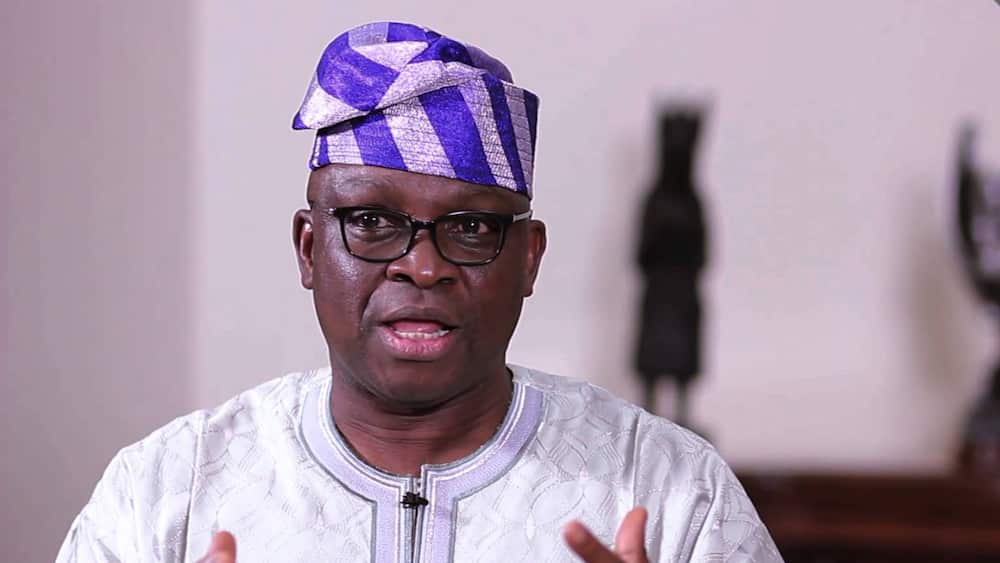Former Nigerian governor Ayodele Fayose has asserted that President Bola Tinubu holds a commanding position to win the 2027 presidential election, claiming the incumbent leader has consolidated support across Nigeria’s southern states. During an interview on Channels TV’s Politics Today, Fayose argued that Tinubu—who leads the ruling All Progressives Congress (APC)—would only need to secure a modest number of votes from northern regions to secure re-election.
Fayose, a former governor of Ekiti State and member of the opposition People’s Democratic Party (PDP), stunned analysts by predicting his own party’s collapse in the 2027 race. He forecasted the PDP would place fourth, trailing behind the Labour Party’s Peter Obi in second and the smaller Action Democratic Congress (ADC) in third. “APC will come first. Obi will come second. Write it down—PDP will be fourth,” he declared, dismissing suggestions his claims lacked credibility. “The man [Tinubu] has taken all over the south. He needs little to turn it in the north.”
The remarks reflect deepening fractures within the PDP, which governed Nigeria for 16 years until 2015. Fayose, known for his outspoken criticism of party leadership, described the PDP as a “carcass” plagued by internal mismanagement and defections, including his own supporters. “Pretenders can pretend, but the party had messed up,” he said, attributing its decline to a failure to address grievances and retain key figures. His criticism underscores broader challenges for Nigeria’s opposition, which has struggled to counter Tinubu’s APC since its formation in 2013.
Fayose praised Tinubu’s political acumen, citing his role in building the APC into a dominant force that unseated the PDP in 2015 and secured victory again in 2023. “Tinubu, even outside government, strategized to defeat PDP in 2015. In 2023, without a strong opposition, he defeated everyone,” he said. While acknowledging Labour Party candidate Peter Obi’s resilient appeal in the southeast, Fayose downplayed the PDP’s prospects, urging voters to “stop fooling people” about its relevance.
The predictions arrive amid lingering economic challenges under Tinubu’s administration, including inflation and currency devaluation, which have fueled public discontent. Analysts note that Fayose’s assessment, while controversial, highlights shifting alliances in Nigeria’s complex electoral landscape, where regional loyalty and party defections often reshape outcomes. With four years until the next election, the statements signal early jockeying among political heavyweights to frame narratives around Tinubu’s viability and the opposition’s capacity to regroup.
